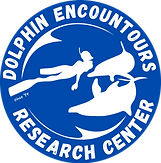The SeaSearch team will be joining the Dolphin Research Team in the Ponta do Ouro Partial Marine Reserve in Mozambique! During this time Sasha Dines will be visiting and working on her PhD "Using novel acoustic methodology to inform conservation actions for South Africa's most endangered dolphin; the Indian Ocean humpback dolphin (Sousa plumbea)”
Brief Synopsis - The Indian Ocean humpback dolphin (Sousa plumbea) is South Africa’s most endangered resident marine mammal (Plön et al., 2016). There is clear evidence of an overall population decrease and behavioural adaptations over the last 3 decades. Threats include noise pollution, overfishing, boat interactions, shark nets and coastal development. The further development of Southern Africa`s Ocean Economy will increase pressure on the species, which may be unsustainable.
The low numbers, cryptic behaviour and extreme inshore environment of the species restrict monitoring using traditional survey techniques. As dolphins rely heavily on acoustic channels for communication and exploration of their environment, passive acoustic monitoring offers a cost-effective option for detecting animals. Dolphins use individually distinctive signature whistles which act as acoustic labels (akin to names). Although proposed, long term monitoring of individuals using naturally occurring individually-specific signals has rarely been conducted, particularly in the marine environment. Acoustic recordings of humpback dolphins and other dolphin species encountered will feed into species classifier software that will allow for automated species detection in the longterm.
During this time we aim to undertake dedicated field trips which will find us using an array of equipment including hydrophones, recorders and camera’s both in-water and out to further study our local population of dolphins. Data will be processed and analysed to use in conservation measures to further protect these vulnerable, sentient species along the African coastline.
We have four spaces for volunteers who would like to dive in and explore the way of wild dolphins and this fascinating area of research.
Volunteers can expect to gain knowledge on ethical and responsible dolphin tourism that funds research and conservation through:
Boat & in-water data & image capturing.
Data entry & image cropping and cataloguing for Dolphins of Ponta id project. Preparation of educational/information boards.
Educational orientation with tourists.
Fielding questions are our visitors Center.
Marine animal stranding assistance.
Bone/skeleton preparation, cataloguing & reconstruction for public display.
Tourist / lodge surveys.
Beach and micro plastic surveys.
Dates: 25 January to 23 February
There is a once of fee of R22 200 which includes:
Accommodation sharing 30 nights Two meals per day Training for specific tasks DolphinCare contribution Field trips ~ 3 p/week
Mentoring by the Dolphin Team
Dolphin Pack with t-shirts to be worn while working, certificate of attendance, pictures & dolphin diaries from your stay; information on our dolphins, research & interesting reference papers.
Gear use (mask, snorkel and fins)
Return private transfer from Maputo International*
To reserve your spot please email the angie@dolphincare.org
* Return transfers are based on a group of 4 sharing a private transfer that collects you at 3pm - Maputo International Airport and drops off at 3pm on departure day. Times may change depending on group arrivals.

Comentarios